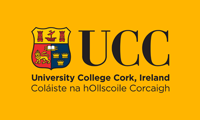Research

APC Research
The scope of the research on host-microbe interactions in the APC Microbiome Institute has relevance to a range of inflammatory, infectious and other disorders within and beyond the gut, as well as to health maintenance. “Butterflies in my tummy”, “sick with fear”, “gut feelings”…these are all terms in daily use. But if you think about it, they all reflect the fact that our brain and our intestine are in continual dialogue. This two-way conversation that our brain and gut have daily is referred to as the gut-brain axis.
Indeed, the intestine is referred to as the ‘other brain’ or the ‘little brain’ by scientists because it has as many nerve cells as there are in the spinal cord. Recent research has shown that the microbes (bacteria) in the gut also participate in this gut-brain axis and can influence the perception of pain in the gut and may also modulate stress responses. It seems reasonable, therefore, to ask how we can modify or modulate the microbes and this is achieved primarily by diet. APC scientists are exploring diet-microbe-host interactions.
This work has shown that it is possible in experimental animals to reduce the hypersensitivity, that some patients have in the gastrointestinal tract, by dietary measures. More intriguingly, work has shown that diet-microbe interactions may influence the risk of obesity and metabolic syndrome. This should come as no real surprise since the bacteria in the intestine collectively are tantamount to a hidden inner organ – an organ within an organ – and each bacterium is like a little cell factory capable of producing a diversity of bioactive chemicals, some of which influence nerves, immune cells and even fat tissue.
APC Research Themes
APC research is subdivided into four Research Themes (or Spokes), for budget and administrative reasons, but there is seemless interaction and collaboration amongst these Themes.
Research Publications
A range of APC publications may be viewed by searching PubMed:
If you would like a copy of any APC publication please contact Dr Brendan Curran bcurran@ucc.ie


